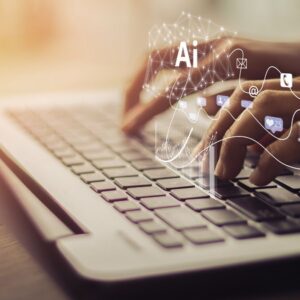 Innovation in the workplace is a driving force behind the success of any organization. As technology advances rapidly, businesses are continuously striving to remain at the forefront and foster creativity and ingenuity among their employees. One such innovation that has been making waves in recent years is the integration of artificial intelligence (AI) tools like ChatGPT into the workplace environment.
Innovation in the workplace is a driving force behind the success of any organization. As technology advances rapidly, businesses are continuously striving to remain at the forefront and foster creativity and ingenuity among their employees. One such innovation that has been making waves in recent years is the integration of artificial intelligence (AI) tools like ChatGPT into the workplace environment.
Understanding ChatGPT
ChatGPT, developed by OpenAI, is a powerful language generation model that has been heralded for its capability to aid in a multitude of tasks, from generating creative content to providing personalized recommendations. In this article, we’ll explore how ChatGPT is inspiring innovation in the workplace and transforming the way teams collaborate, problem-solve, and ideate.
Harnessing the Power of Natural Language Processing
At the heart of ChatGPT’s capabilities lies its sophisticated natural language processing (NLP) algorithms. These algorithms enable ChatGPT to comprehend and produce text that resembles human language, rendering it an indispensable tool for a variety of workplace tasks. Whether it’s drafting emails, brainstorming ideas, or generating marketing copy, ChatGPT can assist employees in generating high-quality content quickly and efficiently.
Enhancing Communication and Collaboration
One of the key ways in which ChatGPT is inspiring innovation in the workplace is by enhancing communication and collaboration among team members. Harnessing its capacity to comprehend and produce natural language, ChatGPT can facilitate more fluid and productive conversations within teams. Whether it’s through chat interfaces like Slack or Microsoft Teams or integrated directly into project management tools like Trello or Asana, ChatGPT can provide real-time assistance and feedback, helping teams stay aligned and focused on their goals.
Fostering Creativity and Ideation
Another area where ChatGPT is driving innovation is in fostering creativity and ideation. Through its immediate access to an extensive reservoir of knowledge and concepts, ChatGPT has the potential to assist teams in overcoming creative obstacles and delving into uncharted territories. Be it the generation of novel product ideas, the brainstorming of marketing strategies, or the formulation of inventive solutions to intricate challenges, ChatGPT can act as an invaluable wellspring of inspiration and wisdom.
Personalized Assistance and Recommendations
In addition to its capabilities in generating content and facilitating communication, ChatGPT can also provide personalized assistance and recommendations to individual employees. By analyzing past interactions and understanding context, ChatGPT can customize its replies to align with the distinct requirements and inclinations of every individual user, providing targeted recommendations and insights that drive innovation and productivity.
Streamlining Workflows and Automating Tasks
One way in which ChatGPT is revolutionizing the workplace is by streamlining workflows and automating repetitive tasks. By automating repetitive tasks like arranging meetings, addressing customer inquiries, and producing reports, ChatGPT liberates employees from mundane responsibilities, enabling them to dedicate their efforts to more strategic and imaginative endeavors. This enhances efficiency and productivity and grants employees additional time to engage in activities that foster innovation and propel organizational growth.
Providing Real-Time Insights and Analysis
Another way in which ChatGPT is inspiring innovation is by providing real-time insights and analysis to employees. Through the analysis of vast quantities of data and the synthesis of intricate information, ChatGPT can help employees make more informed decisions and identify emerging trends and opportunities. Whether analyzing market data, predicting customer behavior, or optimizing business processes, ChatGPT can provide valuable intelligence that drives innovation and business success.
Overcoming Challenges and Ethical Considerations
While the possibilities for incorporating ChatGPT into the workplace are extensive, it is crucial to acknowledge and confront the challenges and ethical considerations linked to AI technology. These concerns encompass issues surrounding data privacy and security, as well as inquiries regarding bias and fairness within AI algorithms. Organizations must approach the integration of ChatGPT and other AI tools with careful consideration and attention to ethical principles.
Ensuring Data Privacy and Security
The protection of data privacy and security emerges as a prominent apprehension when utilizing AI tools such as ChatGPT. As organizations increasingly depend on AI to manage confidential information, it becomes imperative to establish robust security measures that protect against breaches of data and unauthorized access. Implementation of encryption protocols, access controls, and periodic security audits ensures the responsible and secure handling of sensitive data.
Addressing Bias and Fairness
Another challenge associated with AI technology is the risk of bias and unfairness in algorithmic decision-making. Like all AI models, ChatGPT is trained on large datasets of text, which may contain biases inherent in the data. As a result, there is a risk that ChatGPT may inadvertently perpetuate or amplify existing biases in its responses and recommendations. To address this challenge, organizations must take proactive steps to identify and mitigate bias in AI algorithms, including diversifying training data, implementing fairness metrics, and conducting regular bias audits.
Conclusion
Innovation is the lifeblood of any successful organization, driving growth, competitiveness, and long-term success. By leveraging the capabilities of artificial intelligence tools such as ChatGPT, organizations can inspire innovation in the workplace by enhancing communication and collaboration, fostering creativity and ideation, and providing personalized assistance and recommendations. However, it’s essential to approach the integration of AI technology with careful consideration and attention to ethical principles, addressing challenges such as data privacy, security, bias, and fairness. With the right approach, AI tools like ChatGPT have the potential to revolutionize the way we work and drive innovation for years to come.

Recent Comments